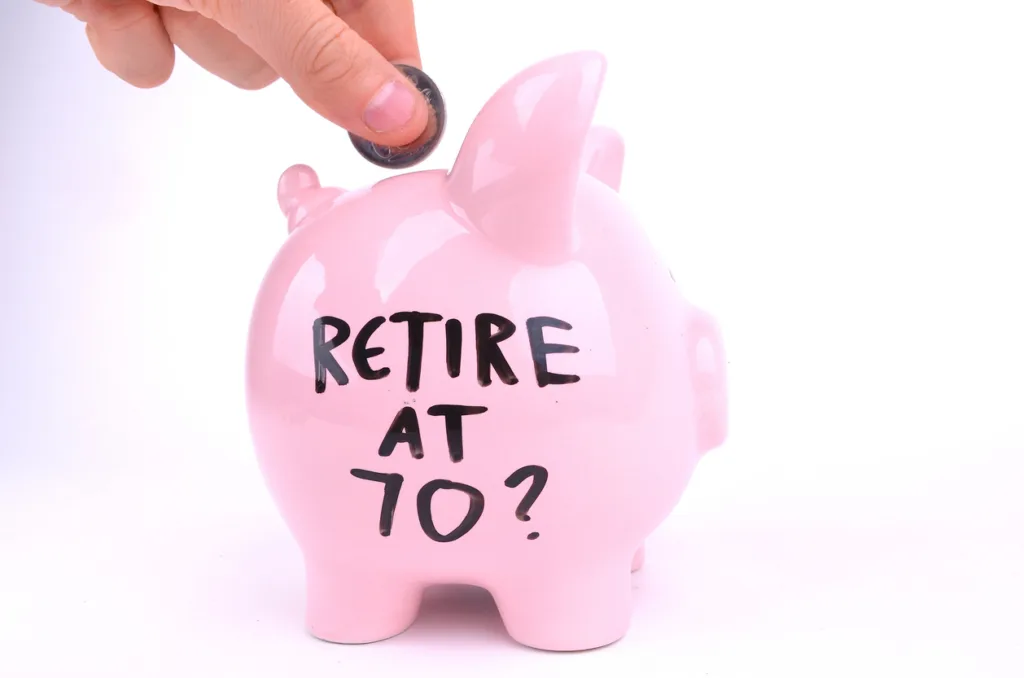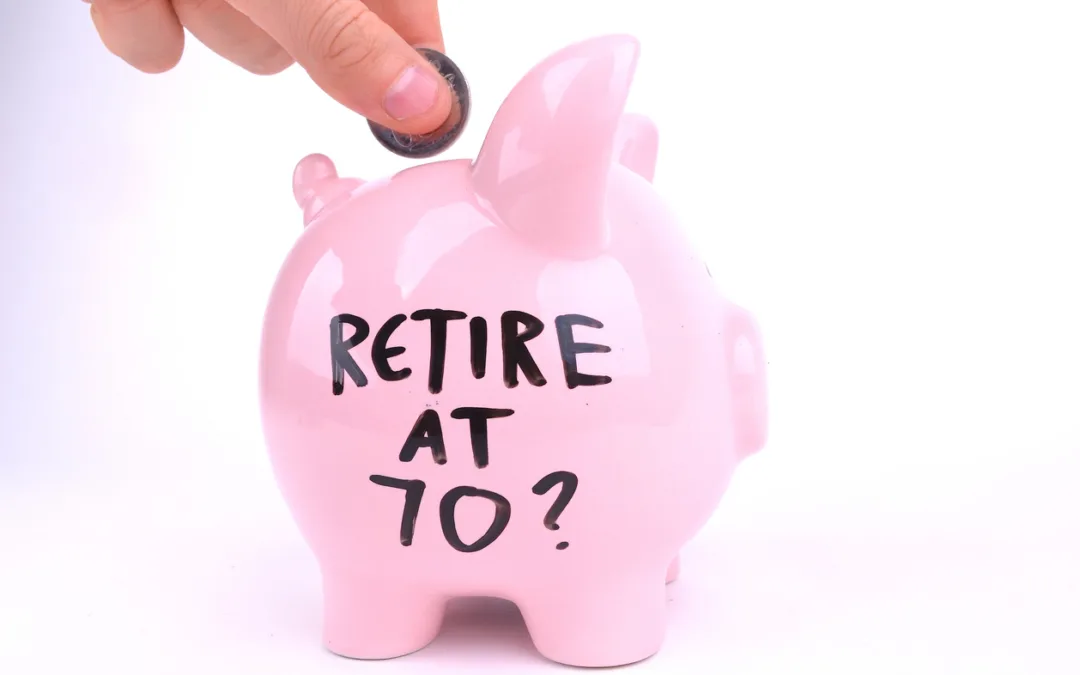
What’s your retirement age?
And why does it matter?
The 1 July increase in the Age Pension age – from 66.5 to 67 – has caused a lot of angst for many pre-retirees who feel they simply can’t keep working until that age.
But once again, much of the commentary has conflated retirement age with Age Pension age. These two ages are usually not the same thing.
In almost every aspect of retirement income, rules dominate your options. But when it comes to your retirement age, the funny thing is that there is no one single rule. There are quite a few. And no one, except you, can decide your retirement age.
This means, in theory, that you have maximum freedom to decide when you will retire and how you will handle your transition from work to play.
But that’s a fairly simplistic summary.
In reality, there are a few mandatory ages which guide your retirement options and timing. And there are three main factors which tend to lead your decision making up front. Let’s start with them.
Doability
When you retire is usually related to what is most doable in your situation. The three factors which influence this ‘doability’ are:
- Physical capacity
- Mental capacity
- Financial capacity.
Note the order. It’s usually your physical and/or emotional situation that calls the shots.
Let’s look at each of these points in order
Your physical capacity
This refers to your physical health and ability to turn up to paid employment and get through the day in good shape. This may be easier to do for a 64-year-old ‘work from home’ copywriter than a 64-year-old plumber who has a lengthy daily commute. So capacity can be a ‘luck of the draw’ aspect to some extent.
Your mental/emotional capacity
This is an umbrella term for a whole host of reasons which may impede your ability to continue to work full time. These include family obligations, mental health, burn out, desire for a change after decades in the same industry or role, skills erosion and many other concerns.
Your financial capacity
In brief, this can be summarised as the need to cover about 65-70% of what you have previously earned full time (after tax), a rule of thumb defined in the Retirement Income Review 2020.
If you have already retired, you will probably recognise that one of the above three factors was stronger than the others in your decision making. (And we’d love you to share which one in the comments below). If you have yet to retire, it may be worth thinking about these three very different factors and to try to understand which will be the strongest in your case. This provides critical information for planning and setting a date on which you will leave full time work.
Once you understand the major forces which will influence your retirement age, the next step is to review the rules on the different ‘official ages. These rules tend to relate to the five different pillars of income in retirement:
- Age Pension (alone) or Age Pension plus super income stream
- Superannuation
- Private investments
- Ongoing work
- Household equity
Here’s how the rules on retirement age apply for these different income sources:
| Retirement Income Pillar | Age Rules |
| Accessing Age Pension | Age 67 for those born on or after 1 January 1957. 66.5 if you were born before that. Check your eligibility here |
| Accessing Superannuation (often referred to as Preservation Age) | Varies from 55 to 60, depending upon your date of birth |
| Accessing Private investments | No age-related rules |
| Continuing to receive work income | There are a handful of occupations whereby you are required to retire by a specific age (e.g. judges, pilots etc). Otherwise, this is usually decided by you and your employer. Income tests apply for those on an Age Pension who still receive work income. A Work Bonus also applies. |
| Accessing equity from your home | To apply for the Federal Government Home Equity Access Scheme you need to be Age Pension age or older. Some private schemes will lend to those age 60 or older. |
So, as you can see, the discussion of what the age of retirement in Australia is tends to be as long as that proverbial piece of string.
What we do know is that many people, due to the need to care for others, poor health or retrenchment often retire far earlier than they had initially planned. As we’ve reported before the target age for most Australians to retire (65.5) is slightly earlier than Age Pension age (67), whilst the average age of retirement is currently a full ten years sooner, at 55.4 (Australian Bureau of Statistics, 2020).
As John Lennon famously noted, ‘Life is what happens while you’re busy making other plans’. So being aware that your planned retirement age is not a certainty, and having clear ideas on your spending needs and how long your own savings might fund you remains the greatest favour you can do yourself.
If you would like assistance to forecast your probable retirement income and how long it is likely to last, an adviser-guided consultation will enable you to project and plan more accurately.
And what has your experience been like?
Have you retired? If so, which factor most influenced the timing?
Do you have any advice for others trying to get their timing right?
We would love it if you could let us know your thoughts in our July Retirement Pulse survey. It will only take a couple of minutes.






Can you Confirm that the recent change that allows retirees to earn a little more income then results in the retiree being. Taxed on both any pension payment as well as the little extra income ie is the pension payments are added to the extra income for tax purposes.?
Hi Peter, thanks for picking our brains! I can confirm that yes the Age Pension is a taxable payment so increases to your Age Pension may impact your tax return.
How much can I have in my super before it affects my full pension.
I can’t seem to get an answer from anyone.
Thanks
Christine
Hi Christine, thank you for reaching out! it is the balance of your super and other assets combined which needs to be under the threshold for a full Age Pension. Therefore how much superannuation you can have is relative to the value of other assets you have. You can review the thresholds applicable to you HERE.
Interesting. I will – in the future in 2 or so years stop working. I am currently 67 but not drawing a pension as my partner and I (she’s currently 61) earn over the income limit. I intend to put my accumulation super account into pension mode – in a few months and I understand the draw down from that account is not taxable income.
In future when I access the age pension (will be a part pension) will both the draw down and pension amount be added to determine the tax I pay on both? Or are any parts not assessable income?
Thanking you
Hi Guy, thanks for your questions. As with most of these things there is an answer that is correct for most people, and a small number of exceptions to the rule. In most cases – yes, the draw down from super will likely be tax-free, and this means the draw down will not be added to any other amounts when determining taxable income. However, this may not be the case if you have any components within super that are taxable untaxed (as opposed to tax-free or taxable taxed). If you want to better understand superannuation, your options, the tax treatment, and whether this is something you need to be concerned about you may be best to book an appointment with myself or one of my team to work through the details together. You can book the appointment by clicking here.
Hi, am going to retire in June 2024 in my 67. I receive age pension from overseas from the country which Australia has Agreement. How would be calculated age pension under income test? Would be: Total full OZZI age pension minus age pension from overseas, where a difference will be a part of OZZI age pension to me? Or is there other way how to count a part of OZZI pension in my situation?
Hi Helena, it’s Sharon here, great question. The foreign pension amount is included by Centrelink as part of the Income Test assessment, to determine your Age Pension entitlements. Centrelink has an Income Test, and an Asset Test, and they run both tests to compare and see which provides the lower result, and that is what you are then paid.
If you don’t yet have the foreign pension, Centrelink will approve the AUS pension, then sends forms for you to complete the foreign pension (which must be done), then when a result is received, Centrelink will adjust the AUS pension payments accordingly.
We have General Advice consultations if you need someone to help explain it further, and these can be booked here if you would like to book an appointment with me.
50 years on the tools the physical pulled me up–but the drive to keep it going that long was having dependant education costs for the most part–it is disgusting the dates 1/7/52 and 1/7/35 are so significant -should have been 1960-64 –this is the main reason so many older females are destitute –the decision made by people who have a well funded retirement –and I think of the constant government ineptitude since Bob Menzies lined up for his 10 pound old age pension–and I agree with comments about unfairness for older age SF Owners paying high home maintenance costs and not getting even a tax deduction where renting pensioners get rent assistance –but many taxes are unfair –state land tax the worse (where you live to where you own) but another topic even though it effects many SF retirees